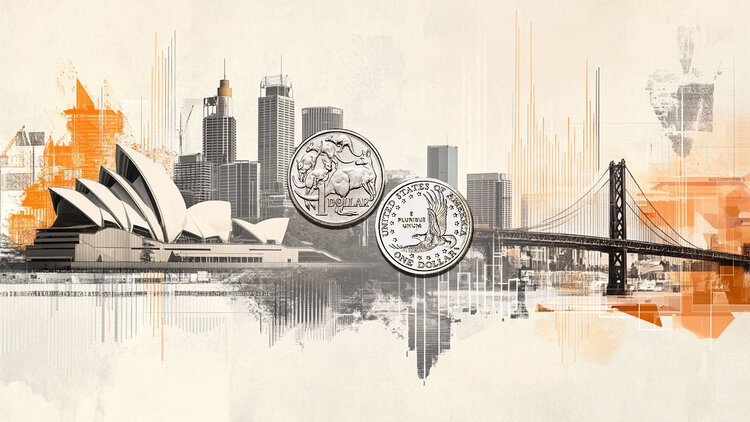- The Japanese yen falls to its lowest level in more than five weeks amid increasing tensions in the Middle East.
- The PMI composed of Japan reaches 51.4 in June, the fastest pace since February, but fails to support Yen.
- The increase in crude oil prices threatens the trade balance of Japan, further weakening the currency.
The Japanese Yen (JPY) begins the week under pressure, extending its loss streak to a third consecutive day against the US dollar (USD) on Monday. The Yen collapsed to its weakest level in more than five weeks, dragged down while the dollar recovered its appeal as a safe refuge after a dramatic escalation in the war between Iran and Israel.
Although Yen is traditionally considered a shelter, this time fought to benefit from it, eclipsed by the greatest attraction of the US dollar after the United States (USA) joined Israel in the launch of air attacks on key nuclear sites in Iran, fueling fears of a broader regional crisis.
The USD/JPY is going up during the European session, having exceeded its 100 -day (MA) mobile average to quote around 147.84 at the time of writing, with an increase of more than 1.15% in the day. The strong ascending impulse of the torque reflects the wide strength of the US dollar, since the operators go to the dollar in search of security, ignoring the optimistic data of the Japanese purchasing managers index (PMI) and fully focusing on the growing geopolitical tensions.
Meanwhile, the American dollar index (DXY) rose above the 99.00 mark, remaining firm around 99.25 while risk aversion flows support the renewed demand for the world reserve currency.
Preliminary PMI data published earlier in the day showed that Japan’s private sector activity is gaining impulse, but failed to support YEN support. The PMI composed of Japan Jibun Bank rose to 51.4 in June from 50.2 in May, marking the fastest pace since February and the third consecutive month of growth. Notably, the manufacturing PMI returned to the expansion territory for the first time since May 2024, rising to 51.3 from 48.6 previously and exceeding the forecasts of 49.5. Meanwhile, the PMI of Services rose to 51.5 from 51.0.
The increase in global prices of crude oil in the midst of tensions in the Middle East is exerting additional pressure on the YEN. Japan imports the vast majority of its energy needs, so the recent increase in oil prices since the conflict broke out in the Middle East will probably worsen the commercial balance of the country. This increasing load of imports undermines the appetite of investors by the YEN, which is already losing ground against the resurgent US dollar.
Citi analysts agreed with this opinion in a recent client note, warning that “an increase in crude oil prices causes deterioration not only in the commercial balance of Japan, but also in its terms of exchange, so it acts fundamentally to weaken the Yen.” In his report, published by Reuters, Citi reiterated his prognosis that the Japanese currency slides further, pointing to 150 per dollar for September.
And in Japanese faqs
The Japanese Yen (JPY) is one of the most negotiated currencies in the world. Its value is determined in general by the march of the Japanese economy, but more specifically by the policy of the Bank of Japan, the differential between the yields of the Japanese and American bonds or the feeling of risk among the operators, among other factors.
One of the mandates of the Bank of Japan is the currency control, so its movements are key to the YEN. The BOJ has intervened directly in the currency markets sometimes, generally to lower the value of YEN, although it abstains often due to the political concerns of its main commercial partners. The current ultralaxy monetary policy of the BOJ, based on mass stimuli to the economy, has caused the depreciation of the Yen in front of its main monetary peers. This process has been more recently exacerbated due to a growing divergence of policies between the Bank of Japan and other main central banks, which have chosen to abruptly increase interest rates to fight against inflation levels of decades.
The position of the Bank of Japan to maintain an ultralaxa monetary policy has caused an increase in political divergence with other central banks, particularly with the US Federal Reserve. This favors the expansion of the differential between the American and Japanese bonds to 10 years, which favors the dollar against Yen.
The Japanese Yen is usually considered a safe shelter investment. This means that in times of tension in markets, investors are more likely to put their money in the Japanese currency due to their supposed reliability and stability. In turbulent times, the Yen is likely to be revalued in front of other currencies in which it is considered more risky to invest.
Source: Fx Street
I am Joshua Winder, a senior-level journalist and editor at World Stock Market. I specialize in covering news related to the stock market and economic trends. With more than 8 years of experience in this field, I have become an expert in financial reporting.


%20MATHIEU%20RAINAUD-03.jpg)




